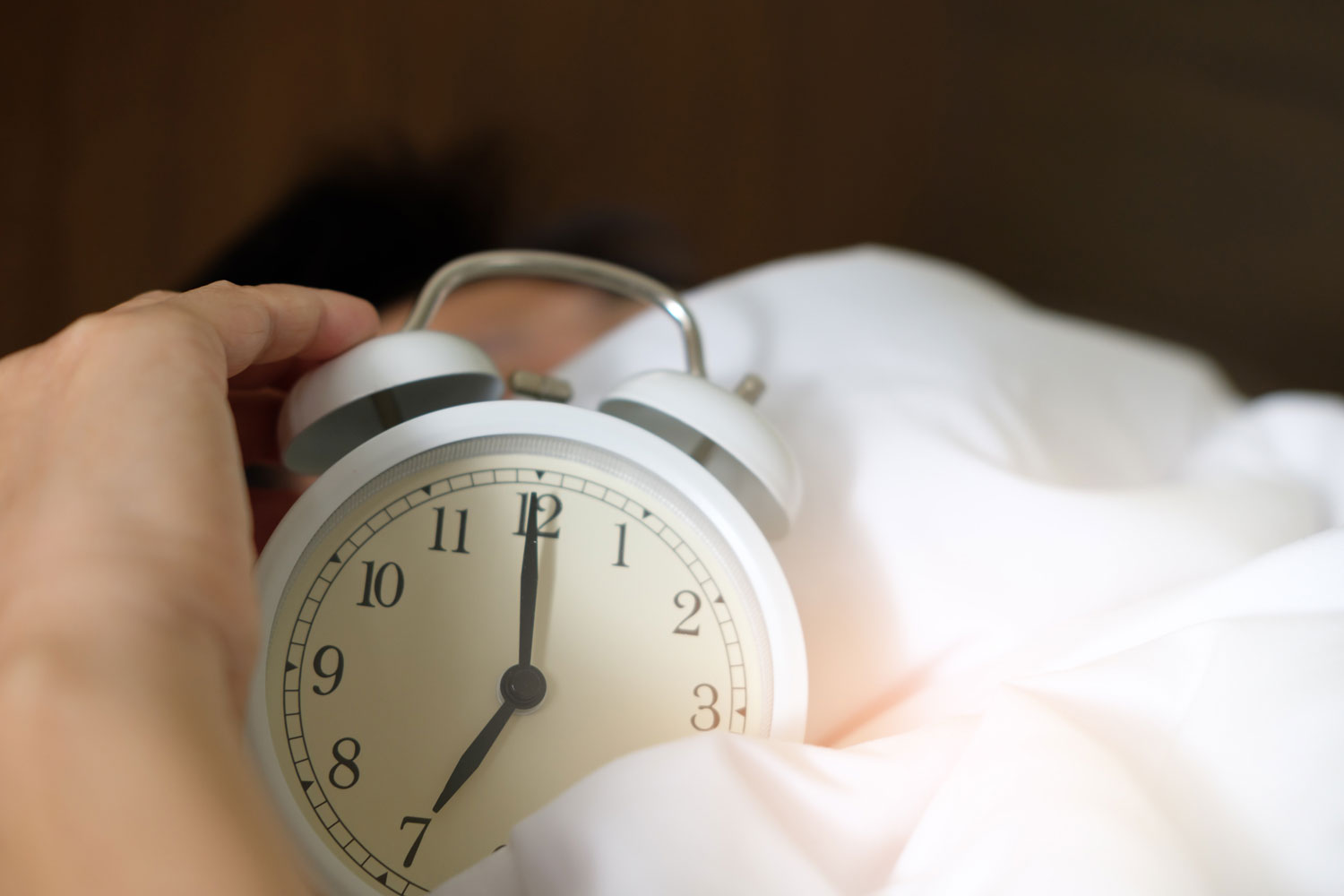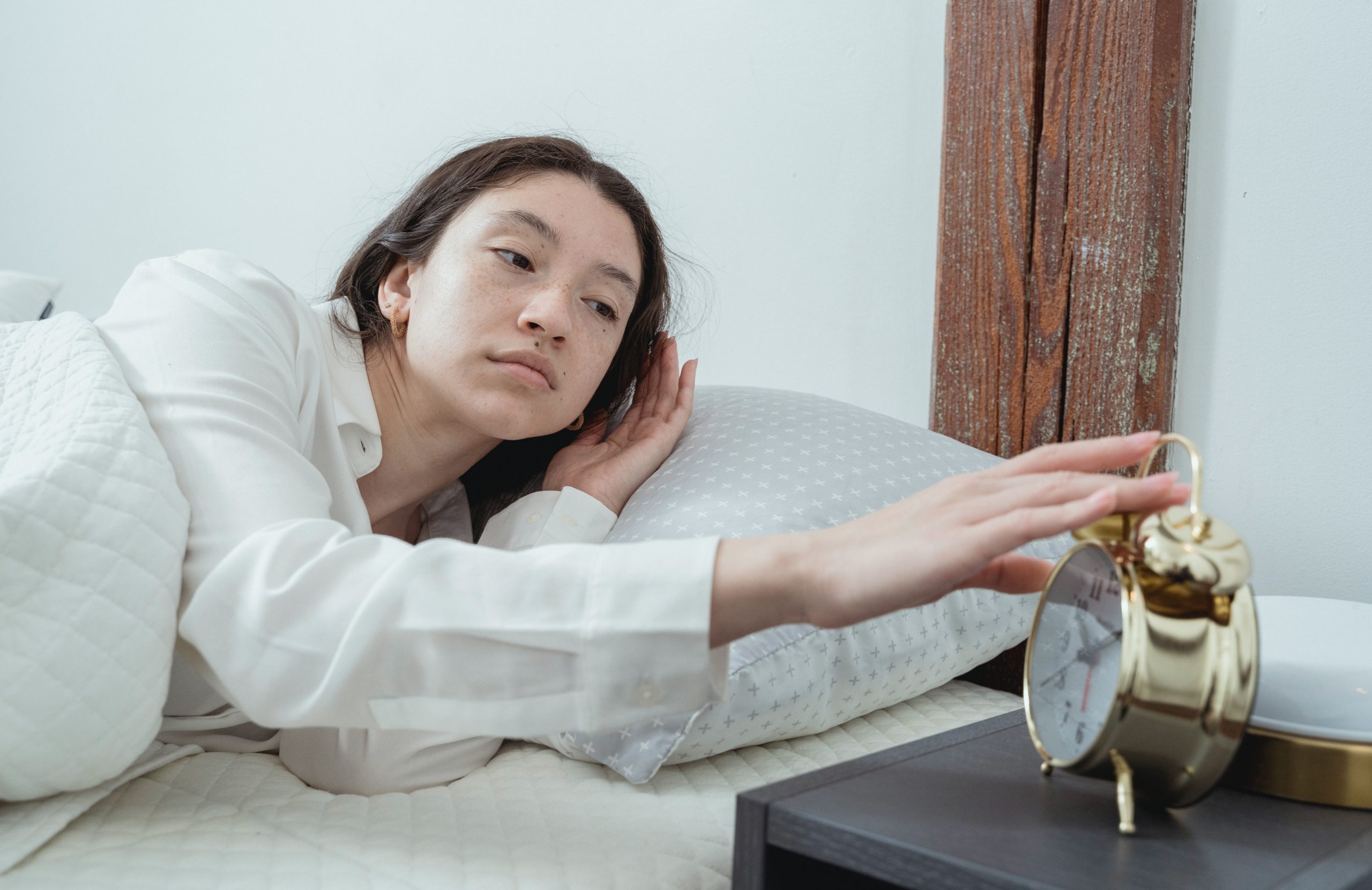
The sun is up, and a brand-new day is here. Cue in upbeat music. Does this scene sound familiar? Blame it on movies and television for letting us believe we’ll jump up from bed and feel immediately pumped up and energized to seize the day the moment we wake up. In reality, this rarely happens. Feeling groggy in the morning is definitely the norm. And it’s all because of the transitional state called sleep inertia.
What is sleep inertia?
Sleep inertia is the psychological state of impaired cognitive and sensory-motor performance that is present immediately after we wake up.
According to RISE, morning sleep inertia is an inevitable part of the sleep cycle, as we transition from sleep to wakefulness.
It generally lasts for 15 to 60 minutes, but in some cases, can stretch for two to three hours on end.
You may feel confused, disoriented, or foggy-brained. And this is all perfectly normal.

However, according to Sleep Foundation, it could be a cause for concern for people who are engaged in frequently rotating schedules or shift work, such as medical resident, interns, and air traffic control officers.
Failing to recognize, address and assuage sleep inertia could have drastic consequences, such as work-related injuries.
What are the symptoms of sleep inertia?
Sleep inertia usually occurs after waking up from a lengthy sleep, but it can also happen after a 30-minute nap.
Do you have bouts of sleep inertia? Check if you have these symptoms, according to Sleep Foundation:
- Grogginess
- Desire to fall back to sleep
- Impaired cognitive ability
- Impaired visual attention
- Impaired spatial memory

What causes sleep inertia?
Sleep researchers have yet to pinpoint the exact cause of sleep inertia, but they have some theories.
One plausible and popular theory is the high levels of adenosine.
Adenosine is a natural chemical neurotransmitter, and it plays a very important role. Adenosine induces sleep. During the day, adenosine levels increase as the day stretches on. Come nighttime, adenosine sends signals to our bodies that we’re sleepy and that it’s time to sleep. It’s a very important chemical that ensures we fall asleep soundly.
As our sleep progresses, our brains should be decreasing adenosine from our bodies. However, it does take a while for us to burn off adenosine. Thus, by the time we wake up, we still have traces of adenosine that causes the groggy feeling.

To banish it, most of us will simply get the coffee-maker going, and drink a cup of coffee first thing. But though caffeine is effective, it does have its shortcomings. For one, it causes us to feel jittery and nervous. It can also lead to overdependence or addiction. Caffeine is a stimulant after all, and everything should be done in moderation.
If you’re looking for ways to get rid of that tired, groggy feeling in the morning, besides drinking a cup of joe, here are natural ways you can try to rise and shine.
10 Natural Ways To Get Rid of Sleep Inertia
Tip # 1: You snooze, you lose.
We’re all not fans of alarm clocks here. If it were not a necessity, we won’t think twice about buying one. But did you know that contrary to popular belief, the snooze button hurts, rather than helps?
The problem with snoozing your alarm clock is that it causes fragmented sleep.
“The 10 more minutes of sleep you’re granting yourself over and over and over isn’t productive sleep,” said Dr. Aarthi Ram, a neurologist specializing in sleep medicine at Houston Methodist found in this story. “If anything, all of that interrupted sleep will make you feel more groggy.”
Now, this doesn’t mean you throw in the towel for the snooze button. Instead of snoozing for a few short minutes, do 90-minutes in between snoozes. This means setting two alarms: one 90 minutes earlier, and another one for the actual time you need to wake up.
Why do this? Sleep experts explain that you get to snooze in between a full sleep cycle, and enter and finish REM sleep, which is around 90 minutes long. So you wake up feeling your rest wasn’t interrupted.

Tip # 2: Drink water first thing in the morning.
Always have a glass of water ready on your bedside table. The reason? Waking up thirsty and dry-mouthed can cause you to feel weak and fatigued. Let a glass of water freshen you, before you get up and moving.
If the lethargic feeling persists, continue drinking plenty of water. Just make sure not to replace it with sweet or caffeinated beverages.
Tip # 3. Keep a consistent sleeping and waking routine.
Do you burn the midnight oil constantly? If you repeatedly work late into the night, and have an inconsistent sleep and waking schedule, it’s highly likely you’ll experience sleep inertia.
But you make up for that overtime by sleeping late into the day, you reason? Well, you’ll probably still feel groggy anyway. When your body detects inconsistencies, it wouldn’t know when to expect waking and sleeping. Having no routine will confuse your body clock. Take it from workers who have night shifts. Night shift work disrupts the body’s circadian rhythms, or 24-hour internal “clock” that controls sleep-wake cycles.
Also, experts say missing the sunrise is a lost opportunity for you to rise and shine. As much as possible, they recommend sleeping three hours after sunset, and waking up as soon or just as the sun rises, which leads us to the fourth tip.

Tip # 4. Bask in sunlight.
Sunlight is a very effective anti-sleep inertia fix. According to an article published on RISE, sunlight not only sends visual cues to your master or body clock, it also increases your core temperature to shake off the last sludges of sleepiness.
There are two ways you can go about this. First, you can simply sit up and raise the curtain. Let the sunlight seep into every pore of your skin. Second, you can go outside and take a short stroll. Exercising will increase your serotonin levels, and will ensure your day’s off to a good start.
Tip # 5. Splash your face with water.
Simply splashing your face with cold water will jolt your body into feeling more energized. What’s more, it can invigorate sluggish and tired-looking skin, reducing morning-time puffiness. It’s a simple tip we often take for granted.

Tip # 6. Eat a hearty breakfast.
And when we say hearty, we mean a healthful plate, and not carbohydrate and sugar-filled meal.
Instead of a stack of pancakes, go for proteins, whole grains, nuts, and lower-sugar fruits. These foods are effective in fighting fatigue. How about a chia and berry smoothie bowl, and a cup of black coffee for breakfast?
Tip # 7. Do some stretching.
While sleeping, our muscles are rendered paralyzed. Performing simple stretches in the morning will help warm up your muscles and promote circulation in the body. Try simple stretches like shoulder stretch and triceps stretch to kick off the tiredness from your body.

Tip # 8. Jot down your goals before you sleep.
It helps to jot down your tasks before you sleep. It gives you a sense of purpose, and keeps you on your toes in the morning. If you’re having your breakfast, try looking at your list to jumpstart your morning.
Tip # 9. Create you “wake up” playlist.
They call it the “good morning” music. These are songs that will help you wake up happy. Here Comes the Sun by The Beatles is the quintessential morning song. What other morning songs will you add to your playlist
Tip # 10. Practice good sleep hygiene.
Lastly, there’s no substitute for quality sleep. So make sure to practice good sleeping habits. Do this by closing off all the devices, picking the right bedding, and practicing aromatherapy.
Tags
References:
https://www.medicalnewstoday.com/articles/321889
https://www.healthline.com/health/cold-flu/fun-facts#Laughter-helps-your-immune-system
https://alleninstitute.org/what-we-do/immunology/news-press/articles/5-cool-things-your-immune-system-can-do
https://www.medicalnewstoday.com/articles/321889
https://www.parents.com/featured/StriveThingsYouDidntKnowAboutImmuneSystem

Website Design and Development by Rocketship Designs
Website Design and Development by Rocketship Designs


0 Comments